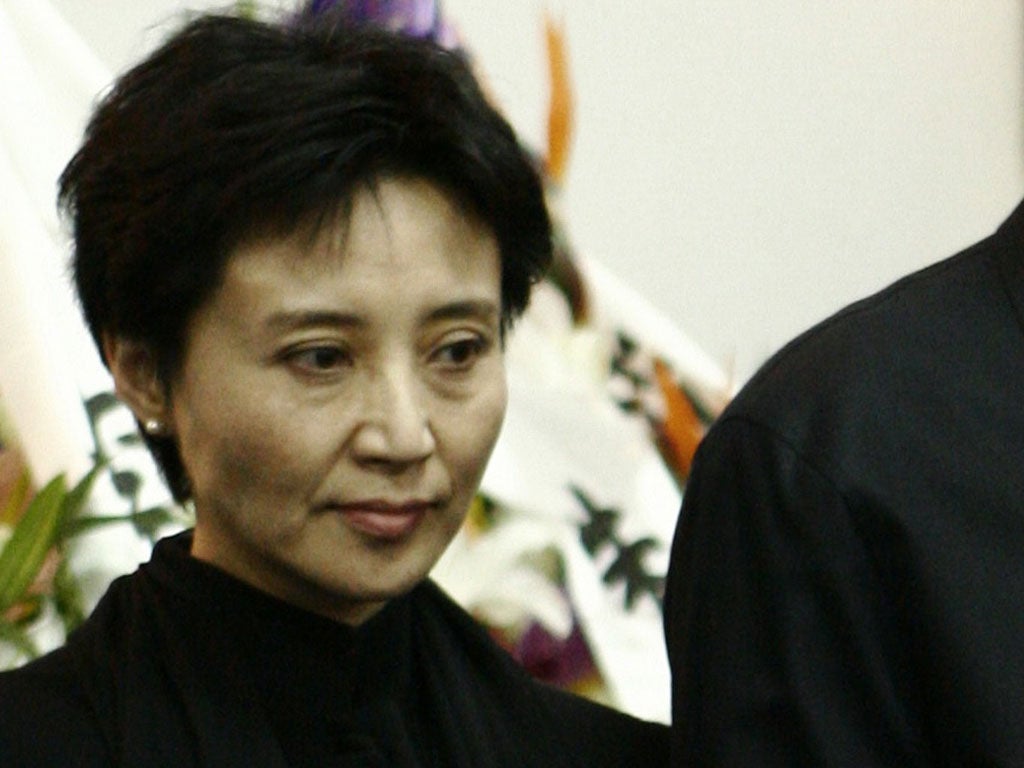Gu had 'mental breakdown' at time of Heywood's death

Your support helps us to tell the story
From reproductive rights to climate change to Big Tech, The Independent is on the ground when the story is developing. Whether it's investigating the financials of Elon Musk's pro-Trump PAC or producing our latest documentary, 'The A Word', which shines a light on the American women fighting for reproductive rights, we know how important it is to parse out the facts from the messaging.
At such a critical moment in US history, we need reporters on the ground. Your donation allows us to keep sending journalists to speak to both sides of the story.
The Independent is trusted by Americans across the entire political spectrum. And unlike many other quality news outlets, we choose not to lock Americans out of our reporting and analysis with paywalls. We believe quality journalism should be available to everyone, paid for by those who can afford it.
Your support makes all the difference.Gu Kailai, the wife of the fallen Communist leader Bo Xilai accused of poisoning British businessman Neil Heywood, claimed she suffered a "mental breakdown" before his death, and will "calmly face" any sentence handed to her.
Ms Gu claimed she was worried for the safety of her son, who Mr Heywood is alleged to have threatened after business deals she brokered for him soured.
"I suffered a mental breakdown after learning that my son was in jeopardy. The tragedy which was created by me was not only extended to Neil, but also to several families," Xinhua, the official news agency, quoted her as telling the court – from which foreign media were barred – at her trial on Thursday.
"I solemnly tell the court that in order to maintain the dignity of the law, I will accept and calmly face any sentence and I also expect a fair and just court decision," she said, according to Xinhua.
Four Chinese police officers admitted that they tried to cover up the murder, according to a court official.
The officers testified yesterday at the same court in Hefei where Ms Gu accepted murder charges on Thursday, but did not reveal why they had sought to hide her involvement, reporters were told.
Mr Heywood's death in November 2011 was initially deemed accidental and his body quickly cremated. But this explanation fell into doubt when former Chongqing police chief, Wang Lijun, told a US consulate in February he had evidence about the death of Mr Heywood. The South China Morning Post reported that Mr Wang could be tried for treason next week in Chengdu.
According to the prosecutors' statement, Ms Gu attempted to kill Mr Heywood in his hotel room in Chongqing by plying him with alcohol and poisoning him. But it appears that her defence team may have argued that the poison could not have caused his death since tests found a "non-lethal dose" in a sample of his blood.
In a post published on the Boxun news website, Zhao Xiangcha, one of the observers, said there were reports of a third person involved in the case.
Join our commenting forum
Join thought-provoking conversations, follow other Independent readers and see their replies
Comments